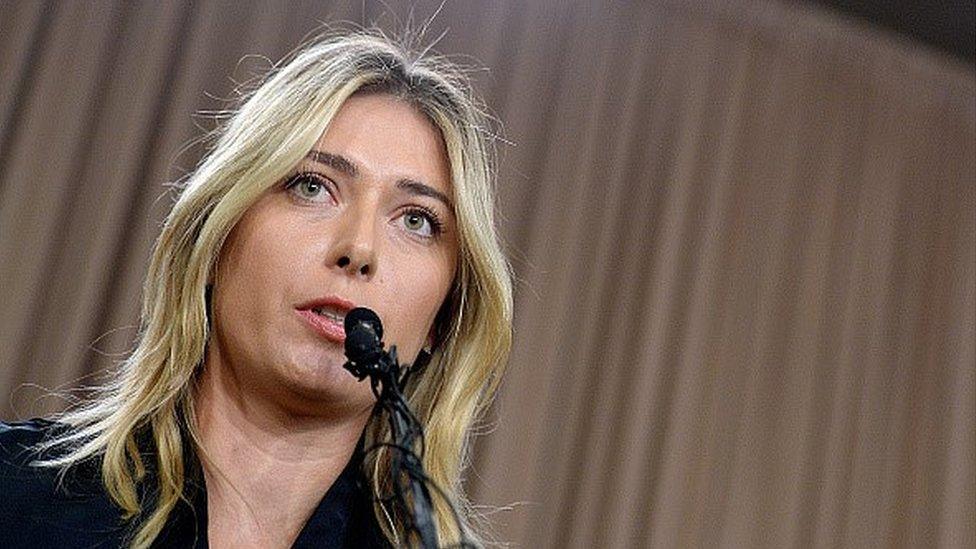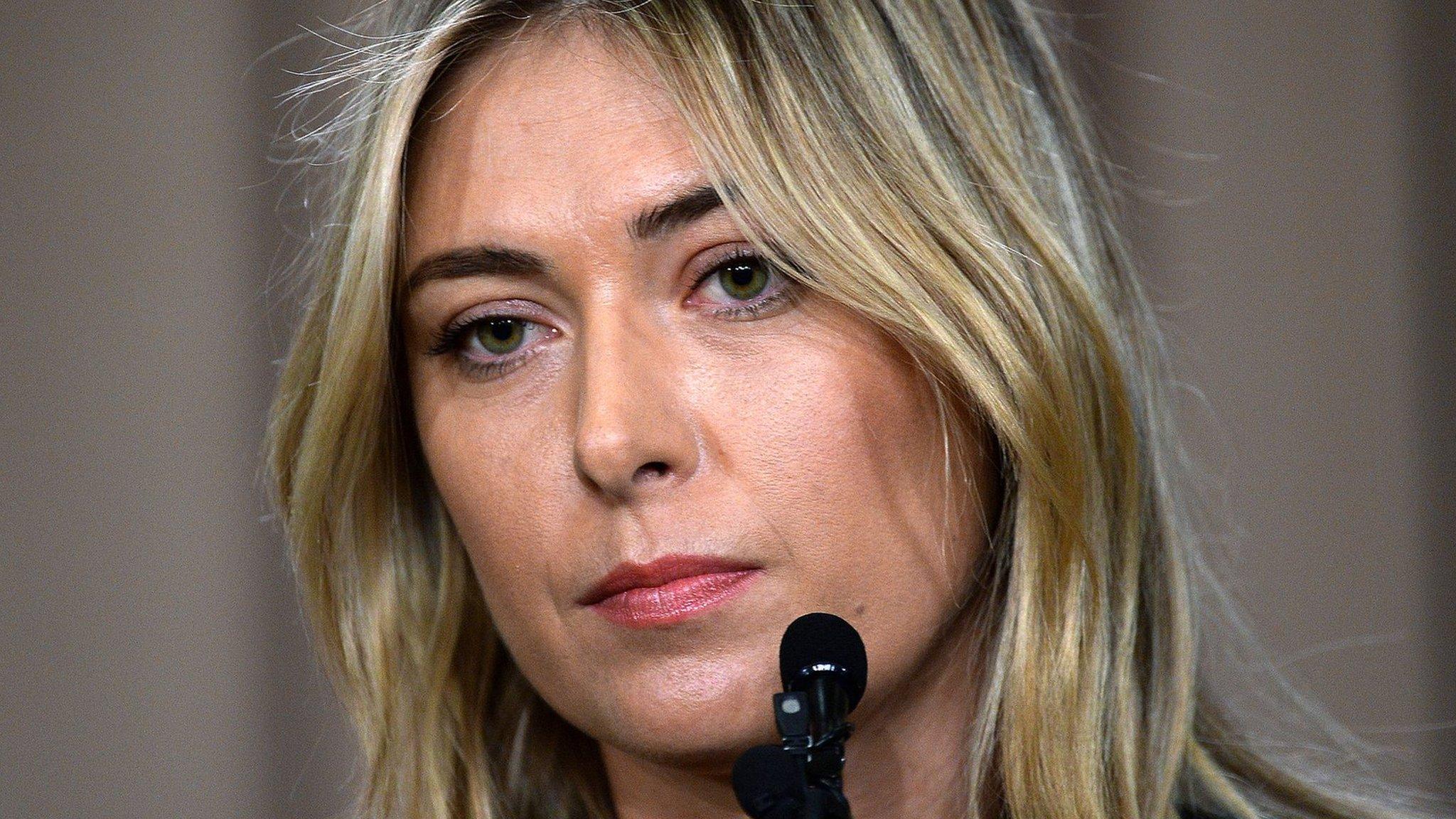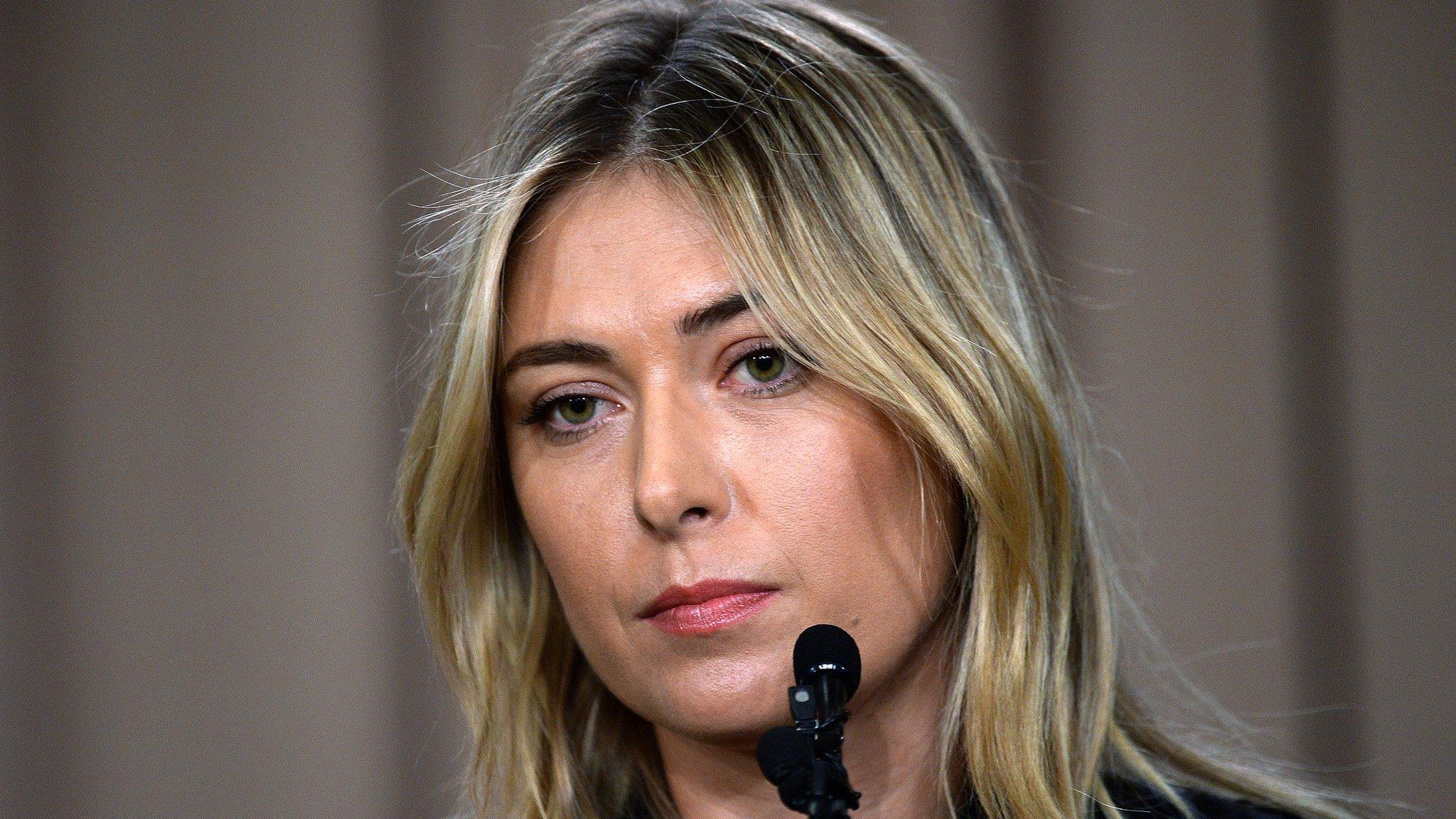Sharapova's sponsors divided after two-year tennis ban
- Published

Maria Sharapova's sponsors have given a mixed response to her two year ban for failing a drugs test.
The Russian tennis player was handed the ban on Wednesday after testing positive for the prohibited drug meldonium earlier this year.
The sports firm, Nike, the racket manufacturer, Head, and bottled water company, Evian have all said they will stand by her.
Car manufacturer, Porsche said it would wait to see the outcome of her appeal.
The Swiss watchmaker, Tag Heuer cut ties with her in March but said it did not rule out working with her in the future.
Cosmetic brand Avon is severing all ties with Sharapova, but insisted it had nothing to do with the ban, saying it was a "limited engagement".
Not intentional
An independent tribunal appointed by the International Tennis Federation (ITF) found the tennis star had not intentionally taken a banned drug but it said she bore a degree of fault and had been taking meldonium to enhance her performance.
She is appealing against the ban.
Following Sharapova's admission in March that she had tested positive for meldonium, a heart disease drug which has only been a banned substance since 1 January 2016, Nike had initially suspended its relationship with her, saying it would monitor the investigation.
But on Wednesday the company said: "The ITF Tribunal has found that Maria did not intentionally break its rules.
"Maria has always made her position clear, has apologised for her mistake and is now appealing the length of the ban.
"Based on the decision of the ITF and their factual findings, we hope to see Maria back on court and will continue to partner with her."
Maria Sharapova's relationship with Nike dates back to when she was 11 years old.
In 2010, she signed a new eight-year contract with the US sportswear giant worth $70m (£49m) as well as a cut on sales of her own branded clothes.
'Flawed decision'
Head has supported Sharapova throughout and issued a strongly-worded statement.
It said the decision to ban meldonium was not based upon "extensive clinical testing" and that it was "evident that WADA [the World Anti-Doping Agency] banned meldonium based upon the amount of athletes using meldonium rather than any scientific evidence".
"We believe, based on the facts and circumstances provided to us, that this is a flawed decision. HEAD will continue to stand by Miss Sharapova," the statement from its chairman Johan Eliasch said.
Evian said given the contravention was not intentional it "has decided to maintain its long-lasting relationship with the champion".
On Thursday, Jean-Claude Biver, chief executive of TAG Heuer, said: "We now have some time and as she is suspended for two years we are not in a hurry anymore to sign a new contract today or this month.
"We will see later what we are going to do," he added.
Carmaker Porsche said in a statement on Thursday: "We have taken note of the recent International Tennis Federation (ITF) ruling in the case of Maria Sharapova and are especially aware that it was decided that she was not accused of intentionally violating the World Anti-Doping-Code.
"As Maria will appeal the decision, we will continue to keep all activities with her on hold until the final judgement has been reached."
'Unfairly harsh'
Forbes estimates, external that she earned £21.9m last year, with only her rival Serena Williams earning more amongst female athletes. However, it predicts her earnings are going to plummet over the next 12 months.
The five-time Grand Slam champion said she had been taking meldonium since 2006 for health issues but said she did not realise it had been added to the banned list as she knew it by another name - mildronate.
She said that, since the tribunal had concluded that her offence was "unintentional" that she thought the ban was "unfairly harsh" and would therefore appeal.
- Attribution
- Published8 June 2016

- Published8 March 2016
